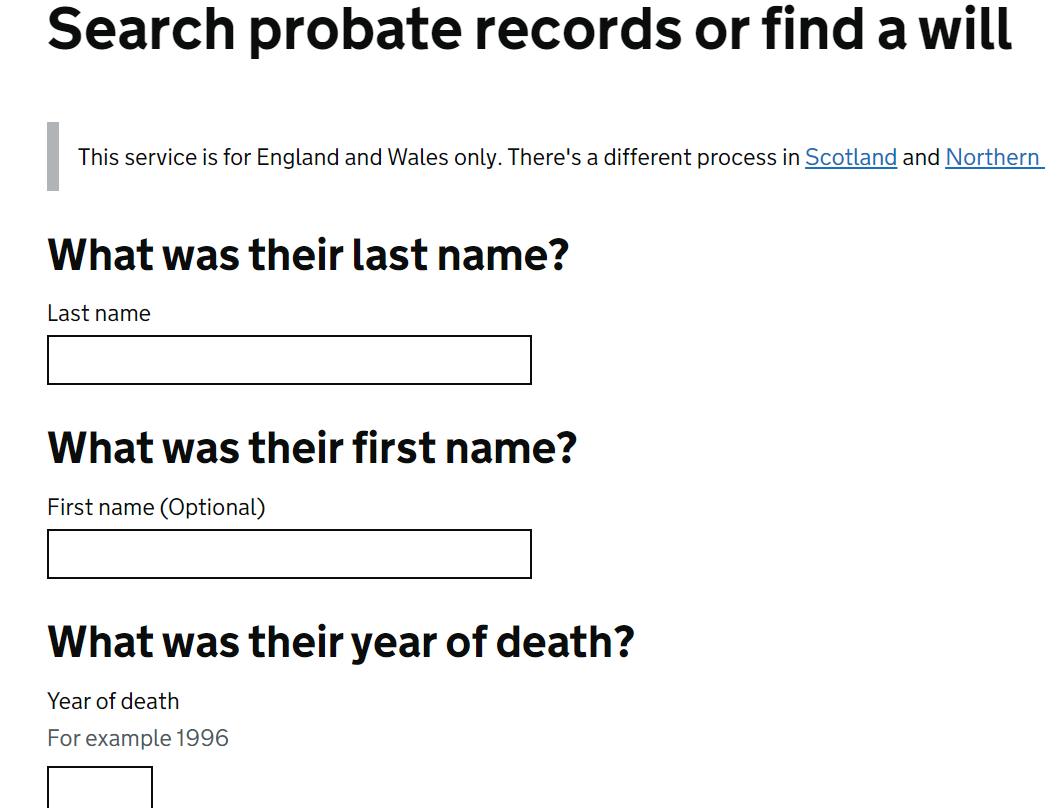There are legal processes set by the UK government for families to claim estate, property or assets left behind by their loved ones who had no Will at the time of death.
The procedure on how to make a claim to a deceased person’s property in the UK was first published by the government on December 6, 2013, following the death of some estate owners in the country and was unclaimed for several years.
Disclaimer: This guidance is not intended to be legal advice for claiming the property of a loved one. It is for information only. You are advised to seek the services of a qualified solicitor in the UK.
What the UK Property Law Says
Under UK law, Bona Vacantia or BV applies, meaning property that has not been claimed. Such property is passed on to the Crown. The Crown can lay claim to an ownerless estate that has not been claimed 30 after the owner of the property died.
According to the Bona Vacantia division (BVD) of the UK’s Government Legal Department, the Treasury Solicitor acts for the Crown to administer the estates of people who die without a Will “and without known entitled blood relatives and collect the assets of dissolved companies and other various ownerless goods in England and Wales.”
Cases of unclaimed estates in the UK
In the UK’s September 8, 2022, updated list of unclaimed estates, 6,744 details of individuals whose property is still unclaimed in the country 30 years after their demise were published.
At the time of writing this guideline, the property of 58 dead Nigerians in the UK was unclaimed. Other deceased persons are believed to be citizens from Pakistan, England, Palestine, Yugoslavia, India, Nigeria, Grenada, Barbados, Ghana, Iran, and Papua New Guinea.
Others are Germany, Greece, Jamaica, Poland, Cuba, Ethiopia, Hungary, Guyana, Sierra Leone, Zambia, Belgium, Antigua West Indies, Yemen, Egypt, Italy, Malta, China etc.
Legal Process of Claiming Property of A Deceased Family In The United Kingdom
1) Check the list of unclaimed estates on the website of the UK’s government (check here)
2) Engage the legal service of a Probate Solicitor or Legal Practitioner in the UK to guide you through the process of obtaining letters of administration in respect of the deceased person’s property in the UK.
3) Check the order of priority to share in an intestate estate i.e someone without a Will.
4) The legal system stipulates that if a family member dies without leaving behind an effective Will, the following are entitled to claim the property in the order shown below:
a) husband, wife or civil partner
b) children, grandchildren, great-grandchildren and so on
c) mother or father
d) brothers or sisters who share both the same mother and father, or their children (nieces and nephews)
d) half brothers or sisters or their children (nieces and nephews of the half-blood or their children). ‘Half ’ means they share only one parent with the deceased
e) grandparents
f) uncles and aunts or their children (first cousins or their descendants)
g) half uncles and aunts or their children (first cousins of the half-blood or their children). ‘Half’ means they only share one grandparent with the deceased, not both
Note: If the deceased has been proven to have a child or children, you can’t lay a claim if you are one of the brothers. You cannot circumvent the order above.
5) You have to be sure of your entitlement to the deceased estate by sending a family tree, including the dates of death of family members on it to this email address: bvestates (at) governmentlegal.gov.uk
6) To be sure if a grant of Probate or Letters of Administration has been issued, do a quick search on the probate records database at: https://probatesearch.service.gov.uk/#wills
7) Thereafter, obtain court-sealed copies of Letters of Administration by sending a postal application to the Probate Registry https://www.gov.uk/search-will-probate
8) Provide sufficient identity documents to satisfactorily convince BVD that you are related to the deceased and entitled to share in their estate before the Crown.
Recap:
The guideline highlighted in this article is resourceful for family members who want to find assets of their deceased person in the United Kingdom.
Reference:
- Bona Vacantia (December 6, 2013). “Make a claim to a deceased person’s estate”. gov.uk.
- Featured image: screenshot from probate portal

